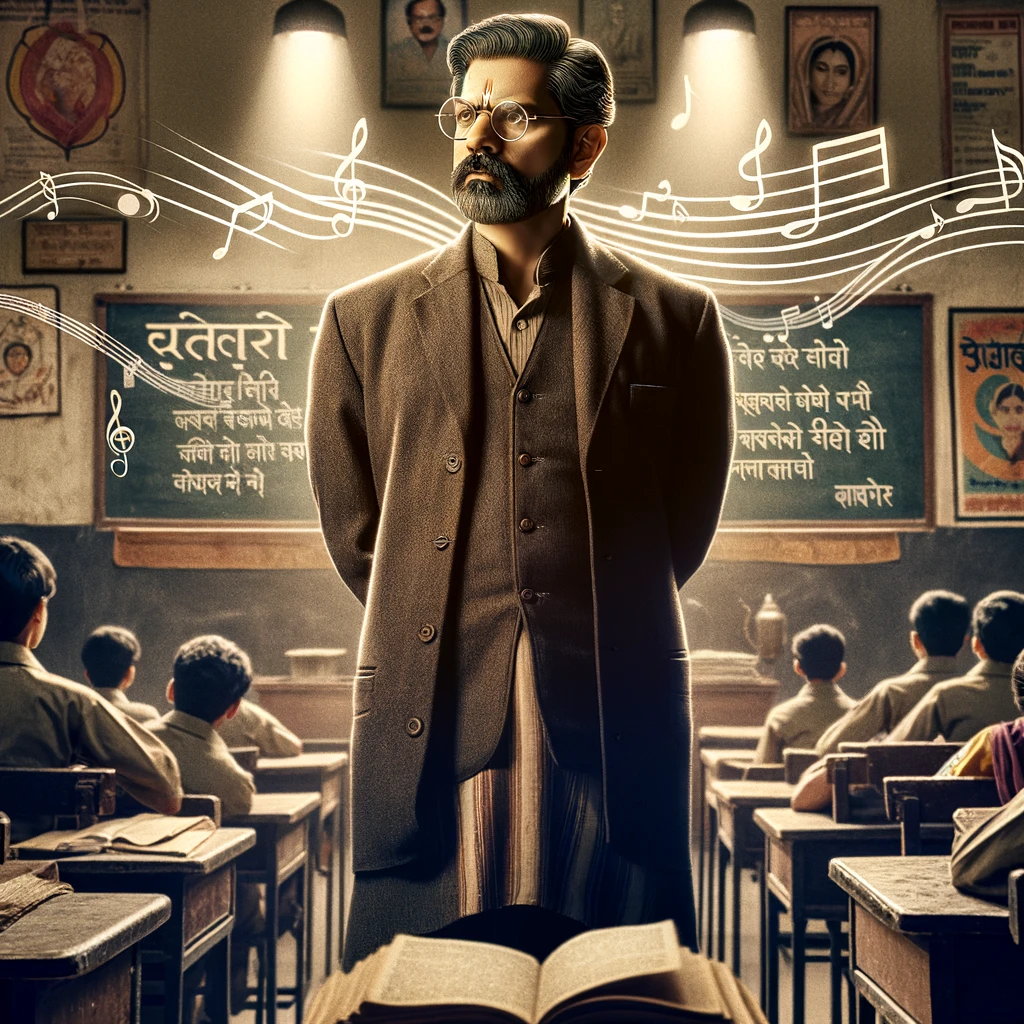
In the journey of life, we encounter various teachers and mentors who leave an indelible mark on our minds. During my intermediate college years, I had the privilege of learning from a Sanskrit teacher who was both respected and feared by students. His stern demeanor was well-known throughout the school, and there was a memorable incident where he disciplined a misbehaving student in the schoolyard. However, behind that stern exterior lay a teacher whose teaching methods were nothing short of exceptional.
What set him apart was his unique way of imparting wisdom through the verses of our Sanskrit textbook. Instead of the typical drab recitations, he would sing these verses in a melodious voice, making them not only easier to remember but also enjoyable to learn. He encouraged us not just to memorize these verses but to incorporate their meanings into our exam answers, a practice that forced us to truly understand and internalize the teachings.
As the years passed, many of us moved on with our lives, and like most people, I retained only a handful of those Sanskrit verses. However, there is one verse that has remained etched in my memory:
स्वायत्तमेकान्तगुणं विधात्रा
विनिर्मितं छादनमज्ञतायाः ।
विशेषतः सर्वविदां समाजे
This verse, taken from Bhartruhari Satakam, emphasizes a timeless and invaluable lesson – the virtue of silence in the presence of those who are more knowledgeable or wise. It suggests that maintaining silence when in the company of those who possess greater wisdom is a sign of respect for one’s own limitations and a deep acknowledgment of the wisdom held by others.

In the context of management and leadership, this verse offers profound insights. In the corporate world, where knowledge and expertise are highly valued, leaders often find themselves in the company of individuals who possess specialized knowledge or extensive experience in a particular domain. It is in these moments that the wisdom of Bhartruhari’s verse becomes particularly relevant.
Leaders who exhibit humility and restraint by choosing to listen and learn from those who are more knowledgeable are likely to foster an environment of respect and collaboration within their teams. This verse embodies a deep reverence for wisdom and learning, highlighting the importance of acknowledging one’s own knowledge gaps and the opportunity for growth through the insights of others.
In the fast-paced world of business, where the pursuit of success can sometimes overshadow the importance of humility and wisdom, Bhartruhari’s wisdom serves as a timeless reminder. It encourages leaders to pause, reflect, and recognize that true leadership involves not only guiding others but also the willingness to be guided and enriched by the collective wisdom of the team.
To underscore the significance of this lesson, let us turn to two memorable movie quotes:
In “The Godfather,” Don Vito Corleone wisely advises, “I’m gonna make him an offer he can’t refuse.” This quote, while not explicitly about silence, highlights the power of strategic communication and the wisdom of choosing words carefully.
Similarly, from “The Shawshank Redemption,” we can draw wisdom from Andy Dufresne’s words, “Get busy living, or get busy dying.” This quote, although not directly related to silence, emphasizes the importance of making meaningful choices and taking thoughtful action.
In conclusion, the teachings of Bhartruhari Satakam, as exemplified by this profound verse, offer valuable lessons for management and leadership. It reminds us that in the quest for excellence, humility and the willingness to acknowledge the wisdom of others are qualities that can elevate not only our leadership but also the overall success of our endeavors. So, let us carry this wisdom forward and strive to be leaders who embrace the silence of learning in the presence of greater wisdom. As the great teacher once said, “स्वायत्तमेकान्तगुणं विधात्रा” – Silence is the highest virtue in the presence of the wise.

